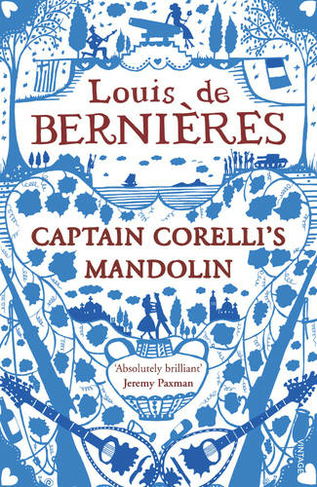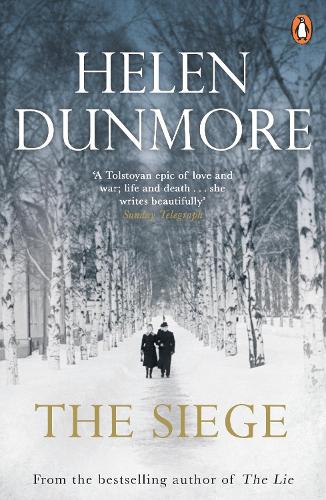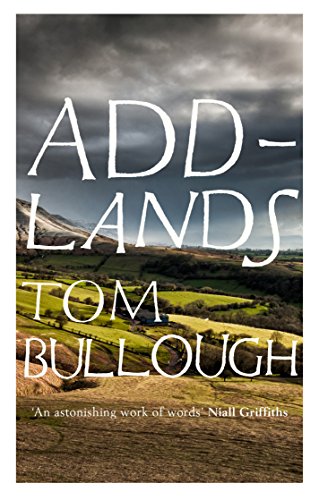Friday 8th May is the 75th anniversary of VE day. That seemed like a good time to talk about some of the great fiction available about the Second World War. There is so much out there on this subject that this was not an easy list to compile, but I have to tried to include books that I would recommend, with varied settings and viewpoints. So, in no particular order, here goes:
Captain Corelli's Mandolin by Louis de Bernieres
Captain Corelli’s Mandolin is set on the Greek island of Cephallonia during the Second World War. Before I read this book (admittedly I was probably only 20 at the time!) I did not even realise that Italy had occupied Greece during the war, so this was fascinating for me. It is primarily a love story detailing the love between an Italian army captain and a local Greek girl (who was already engaged to a local man who had gone away to join the Greek Partisans). Love is complicated enough during wartime as many of these books recommended here will attest, but imagine the difficulties for these 2 lovers who are on opposing sides of the conflict. They must deal with their conflicting personal and political allegiances as the war carries on around them, bringing with it tragedies and atrocities that affect every one in the small Cephallonian community. Louis de Bernieres is a fantastic writer and he manages to write about some truly horrific circumstances without ever leaving the reader in despair. The novel is often humorous and always full of love. The characters are likeable and human. This is a beautiful novel which leaves the reader missing the characters after they have finished. It is one of my favourite books ever - can't recommend it enough.

The Narrow Road to The Deep North by Richard Flanagan
This novel won the Booker Prize in 2014 - deservedly so. The book is mainly set in a Japanese POW camp on the Burma Death Railway where Australian surgeon Dorrigo Evans in imprisoned and looks back on his life before the war. This is not an easy read as it describes the inhumane conditions of these camps but it is a powerful read which examines the human capacity to endure and to love. It is very affecting and provides much historical insight for the reader into the Second World War in South East Asia. Well worth reading, although it is not a novel to be 'enjoyed'.
The Siege, by Helen Dunmore
This novel is set during the siege of Leningrad (when Leningrad was besieged by German forces on the Estern front in WW2), beginning in September 1941, and tells the story of 2 couples and their desperate fight for survival under siege in an unimaginably cold winter. The characters are pushed to the limits of their endurance and while this novel is a depiction of the horrors of war and the far-reaching consequences it has for the lives of ordinary people, it is also a celebration of life, of love and of survival. It is truly astonishing. I am ashamed to say this is a part of history I knew nothing about, but this fantastic novel opened my eyes to this incredible event and had me rushing off to do my own research. Detailed and evocative and deeply moving - not to be missed.
All the Light We Cannot See, by Anthony Doerr
This is an atmospheric and moving depiction of life in occupied France during the second world war - specifically St Malo, through the eyes of a young blind French girl, Marie Laure. At the same time it is the story of a young German orphan, Werner, who is fascinated by the workings of his radio and grows up to become a master at building and fixing radios, which leads to him becoming a tracker of the resistance in St Malo, ensuring that his path crosses with that of Marie Laure. It is beautifully written and deeply moving, with an usual structure that moves between the 1930s and occupied St Malo in 1944. It effectively explores the good people try to do in their lives and it will certainly make you think.
Everyone Brave is Forgiven, by Chris Cleeve
I read this book a couple of years ago and intended to write a review at the time, but was left feeling too raw afterwards. It is one of those books that gets the reader completely emotionally involved and there is some heart-wrenching stuff involved as well as some particularly horrifying descriptions of the Blitz, so be warned. That said, I was affected and moved by the experience of reading it which is why it makes it onto this list. As with his other novels Chris Cleeve has written an addictive and compulsive book - you cannot put it down. The story centres on 3 main characters - Mary, Alastair and Tom - and their wartime experiences. It is a story of bravery, love and friendship as well as the effects of war. It is very different from Cleeves' other work, but well worth a read.
Enigma, by Robert Harris
As the title suggests this fast-paced thriller is based around the code breaking events at Bletchley Park during the Second World War. Robert Harris has the rare ability to tell a story that educates as well as absorbs. Too often you can come away from a historical novel feeling that you have been bombarded with facts and information without getting to know the characters or being immersed in their world. Not so here - while the reader undoubtedly learns about what happened at Bletchley Park and how instrumental that was to the war effort, they are also seamlessly transported to the 1940s Britain that is so artfully evoked. Great stuff.
The Night Watch, by Sarah Waters
This tells the story of London through the 1940s through the eyes of 4 main characters; Helen, Kay, Viv and Duncan. Each character has a backstory and their stories connect in subtle and sometimes startling ways. This is a very moving story about relationships set against the backdrop of the Blitz and the ordinary acts of heroism encountered every day. Beautifully written, this novel is both a thrilling page turner and an emotional rollercoaster.
What Second World War fiction would you add to this list?













